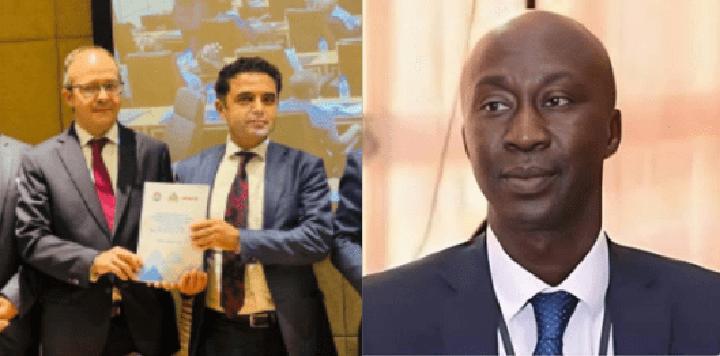Africa-Press – Gambia. Many thought it meant foreign investment when Gambians heard that Albayrak Group, through its subsidiary Alport Banjul, had signed a 30-year Public-Private Partnership (PPP) to manage and modernise the Port of Banjul.
But a closer look at the fine print and the recent Zenith Bank financing deal raises more complex questions, whose money is really being used, and who will own the benefits?
A “private investment” that draws from Gambian banks
On paper, Albayrak is bringing modernisation, machinery, and efficiency to the port, with new tractors, stackers, and construction works underway.
But the company’s latest financing reveals something different, Instead of bringing fresh capital from Turkey, Albayrak took a commercial loan from Zenith Bank Gambia to fund the rehabilitation project.
That means the capital fueling this “foreign investment” is mainly domestic money, the same limited pool Gambian businesses struggle to access for trade or production.
In other words, the port project isn’t injecting foreign exchange into the economy; it’s pulling from it.
For a country battling forex shortages, this financing model could tighten liquidity, weaken reserves, and limit credit to local firms.
The 80/20 split: Adeal that tilts the scales
Under the 30-year agreement, Alport Banjul keeps 80% of all port-generated revenue, while The Gambia retains only 20%.
That’s not a short-term management contract, it’s a generational handover. Supporters say it brings expertise and modernisation; critics call it economic surrender.
For context, even Senegal’s private port operators under DP World retain far smaller profit margins, with the host state maintaining majority oversight.
An 80/20 split means that for every D100 earned at the Banjul Port, D80 goes abroad, and only D20 stays to fund schools, hospitals, and national development.
The risk hidden in the loan
Investors praise Albayrak’s loan with Zenith Bank as a “vote of confidence.”But for Gambians, it raises at least three critical risks:
1. Currency drain: If loan repayments or dividends are made in dollars or euros, that’s another steady outflow of foreign exchange.
2. Local credit pressure: Zenith’s lending capacity is limited by local deposits. A large facility in Alport could crowd out Gambian SMEs seeking financing.
3. Sovereign exposure: If the government provided any guarantees (directly or indirectly, as seen in past PPPs), public funds could be on the hook if the company defaults.
These are not minor issues; they are fiscal and macroeconomic risks that deserve parliamentary scrutiny.
Efficiency vs equity
Alport claims success: zero vessels waiting, had delays cut by 70%, new machinery on site.
But efficiency without fair revenue-sharing or capital inflow is like a fast-moving train headed in the wrong direction.
A port can be modern and still bleed national wealth if ownership and financing structures favour the foreign operator more than the host state.
The real question for citizens
If the Turkish company is borrowing from Gambian banks, earning in dalasi, repatriating profits in dollars, and keeping 80% of the revenue,
What exactly is The Gambia gaining besides promises of modernisation?
And when that 30-year clock runs out, what will be left?
A rebuilt port or another contract that privatised national wealth under the banner of investment?
The bottom line
The Banjul Port modernisation should have been a symbol of renewal.
Instead, it risks becoming another public asset leveraged for private gain, financed by Gambian money, repaid in foreign currency, and locked in a 30-year imbalance.
Genuine partnership means shared risk, shared capital, and shared benefit.
Until then, Gambians must keep asking the tricky question:
When foreign investors borrow locally, who’s truly investing, and who’s truly paying the price?
For More News And Analysis About Gambia Follow Africa-Press






